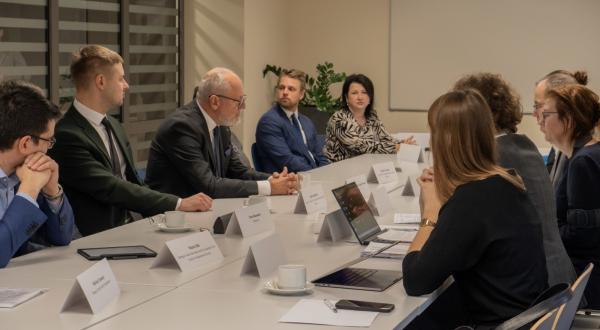AI and students’ mental health unite experts at RSU Erasmus+ Staff Week
From 2 to 6 June, Rīga Stradiņš University (RSU) hosted international Erasmus+ Staff Week, ‘Mind Meets Machine: AI and the Future of Student Mental Health’. The event brought together policymakers in education, lecturers, psychologists, researchers, AI experts, and mental health professionals from across Europe to jointly explore innovative solutions for improving student well-being in the digital age.
Over the course of three days participants partook in engaging discussions, knowledge exchange, and presentations of research and practical examples of how AI can support young people’s mental health in the context of education. Participants explored both the potential of these solutions, and the ethical challenges related to data use and personalised support mechanisms, as well as practical applications within educational settings.
The Erasmus+ Staff Week events were divided into three thematic blocks:
- AI tools for supporting student burnout and mental health;
- personalised AI applications and their use, and academic workload;
- ethical aspects of artificial intelligence and challenges of data storage.
Alongside the academic programme, participants had the opportunity to take part in practical workshops with mindfulness practices aimed at restoring emotional balance and reducing stress. Participants worked through several scenarios designed to help students in specific problem situations.
In addition, networking evenings, a cultural programme at the RSU Anatomy Museum, and thematic sessions were organised, during which new Erasmus+ collaboration ideas began to take shape.
In total, the event brought together more than 60 participants from over ten countries, each contributing their own ideas, experiences, and practices in this important field. As many participants underlined, this collaboration offered a valuable opportunity to look at psychological well-being from diverse perspectives.
As the host of this event, RSU once again affirmed its significant role in the higher education landscape of the Baltics and Europe. The university continues to drive change in the field of student well-being, the development of educational technologies, and the promotion of sustainable international collaboration.










































